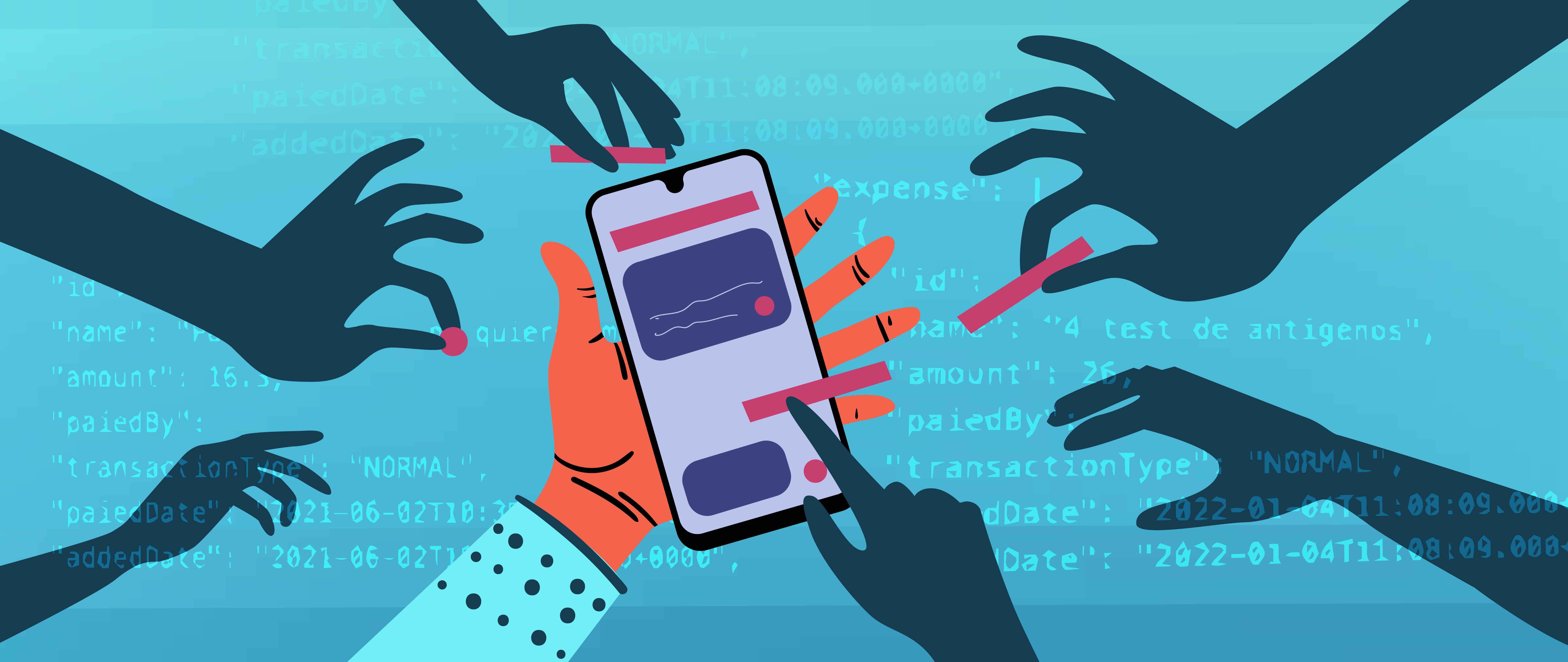Budgeting apps sound like the perfect way to keep expenses under control — or to save money for a trip, house deposit or even retirement. Such apps are often touted as free services that promise to keep a firm grip on our financial data and treat it securely.
Take those promises with a pinch of salt.
A joint investigation into five fintech apps commonly used in Europe — Splitwise, Tricount, Fintonic, You Need a Budget and Revolut — reveals that they consistently share personal information with financial aggregators and third parties.
The investigation also shows how our expenses can be processed for different purposes. For example, some apps admit going through users’ payments to offer up advertisements.
The investigation was led by Maldita, a Spanish non-profit devoted to debunking disinformation and, among other things, defending digital rights. Maldita collaborated with Tactical Tech, a German-based NGO that investigates how digital technologies impact society, and SocialTIC, a Mexican non-profit also specialising in digital technology.
The team found that our personal financial data is fed to hungry trackers with low privacy standards and aggressive approaches.
One firm, for example, promises its clients to de-anonymize users on the basis of data that is not supposed to identify us by name. The company concedes that the service is not entirely lawful but nevertheless offers it to fintech apps.
Y tú, ¿cómo gestionas tu dinero? ¿Se lo cuentas a una aplicación? 📲 Pues atención: una investigación de @MalditaTech @Info_Activism y @socialtic revela cómo manejan y comparten tus datos financieros las apps de control de gastos 💸👇 https://t.co/vBmMJq9zNw
— MALDITA TECNOLOGÍA (@MalditaTech) March 22, 2022
Some of the apps use algorithms to build financial profiles of users that are then shared with other actors like banks or financial aggregators, which can then decide whether to approve loans or credit products.
Why is this important? Many people hesitate to share money matters with friends, colleagues or family yet think nothing of granting apps full access to their private financial information. Confident that the data will stray no further than their phones, they link bank accounts and payment histories to the apps.
Some users input details of their most intimate purchases, including pharmaceuticals, alcohol and illegal drugs.
See the stories below.
